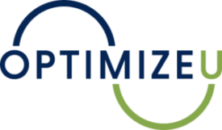Your Inner Voice: How is it Impacting Your Career Search, and What You Can Do About It
How do the silent conversations we have with ourselves impact our progress? If you’re considering a career change or perhaps navigating through this transition now, your inner voice can have a direct effect on your approach and desired outcomes.
Recently I had the opportunity to attend a forum with the Center for Positive Organizations Consortium at University of Michigan. The Consortium offers companies the opportunity to learn from top researchers on how to create organizations where employees thrive. To kick off the day, we were joined by Ethan Kross, one of the world’s leading experts on managing the conscious mind. Kross is an award-winning professor and bestselling author in the University of Michigan’s top ranked Psychology Department and the Ross School of Business. He studies how the conversations people have with themselves impact their health, performance, decisions, and relationships. After an engaging discussion followed by an afternoon of applying these concepts to common work-place scenarios, I continued to ponder the significance that internal conversations have on us, particularly in the work I do as a leadership and career coach.
Navigating through a career change requires perseverance, patience, and determination. Setbacks and disappointments are likely, which can easily result in negative thought loops running through our minds. In Kross’ book “Chatter: The Voice in Our Head, Why It Matters, and How to Harness It”, he shares research and the science behind the impact internal conversations have on our happiness and productivity. During times of career change, this chatter might include questions such as “Do I have what it takes to be successful in this position?”, “Are other candidates more qualified than me?”, or other thoughts like “I haven’t heard back from the hiring manager yet, maybe they’re not interested”, and “I’m not comfortable networking and I’m lacking confidence to put myself out there.”
It’s common for people to overthink networking conversations, second-guess their strengths, and rehash answers they provided during an interview. These thoughts occupy negative space and lead to overwhelm and inaction.
The good news is, there are many tools that can help us harness this chatter and shift towards positive, meaningful thoughts. A few of my favorites discussed during the forum and detailed in the book are:
- Reframe your experience as a challenge – Take time to recognize the new skills you’re developing during the career change process, the new relationships you’re building, and the realization and appreciation that a new opportunity is on the horizon.
- Distanced self-talk – Use your own name when coaching yourself through a challenging situation. For example, I might say to myself, “Jade, you succeeded at this before.” This approach provides a more objective experience and helps separate yourself from the challenge you’re facing. Another option is to consider what advice you would give yourself if you were speaking to a friend.
- Surround yourself with the right people – Build your personal board of advisors. Be thoughtful about who you’ll engage, and for which topics. For example, one friend may be exceptionally skilled for technical and industry advising, while a former colleague would be best to advise on interviewing strategies.
- Increase exposure to green spaces – Take a walk along a tree-lined street or visit a park. Carve out time for being outdoors. And if there’s limited time or access to this, studies show that even watching a video clip of nature or looking at a favorite photo of scenery can quiet chatter and replenish us in positive ways.
These are just a few examples of tools to manage the negative chatter in our minds. Experiencing a career change can be challenging. Therefore, it’s understandable when we deal with uncertainty and complexity throughout the process, our thoughts and stories in our minds can get in the way of progress. Explore creative ways to harness (not silence) that inner voice for progress and positive results.
To learn more about this and other related topics, please visit our OptimizeU Partners website.





